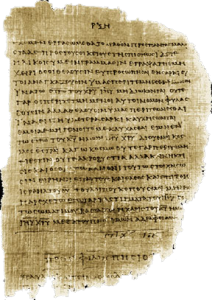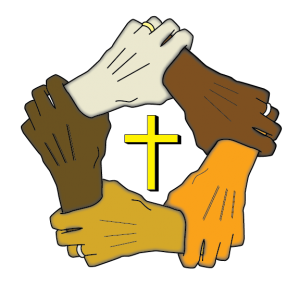Small Group Farming
Jan 27, 2019 // By:Dave // No Comment
 This is a message I presented to a small group (Friday night fellowship) which is going to be the core group for our new Sunday morning fellowship (Agape Home Fellowship)
This is a message I presented to a small group (Friday night fellowship) which is going to be the core group for our new Sunday morning fellowship (Agape Home Fellowship)
Yes, there are questions in here that you must answer by going to scripture. This is intentional 🙂
Parable of Sower
- Matt 13:1-23, Mark 4:1-20, Luke 8:4-15
- where is the sower going to focus His attention, resources (water, light, weeding, etc) ?
- why ?
- is it wrong to not bother with the seeds among the thorns, among the rocks, where the birds will take away ?
parable of wheat and tares
- Matt 13:24-30, 36-43
- what is the tares ?
- why is the tares different from the wheat?
- where did tares come from ? (enemy)
- why cant they be separated before the harvest ? (maturity of character needs to show itself)
- once the tares infiltrate the wheat, they can’t be separated in that field until the harvest.
- is the field symbolic of the world or the church ?
- they cant be part of the Body of Christ, but they can be part of a local assembly that meets in a building
 Many who are not in the process of conversion resemble those who are. Just like true Christians, they go to church, pray, and read the Bible, but they are only religious hobbyists. Jesus calls them “sons of the wicked one” (Matthew 13:38), and being tares, they will be destroyed.
Many who are not in the process of conversion resemble those who are. Just like true Christians, they go to church, pray, and read the Bible, but they are only religious hobbyists. Jesus calls them “sons of the wicked one” (Matthew 13:38), and being tares, they will be destroyed.
Wheat, which Christ uses to symbolize His true children, has always been a vital, life-giving substance, possessing both nutrition and healing properties. During most of human history, it has most commonly been used for bread, and it has long been called “the staff of life.” Herbert W. Armstrong even proclaimed, “The grain of wheat God causes to grow out of the ground is a perfect food.” The matchless quality of wheat serves as a symbol revealing how highly God regards His children.
In contrast, Christ uses the tare to symbolize counterfeits within His church. Tares are weeds diametrically opposite to wheat in all their properties other than appearance. Even the botanical name of the weed, darnel, conveys its detrimental quality. Darnel comes from the French language, meaning “drunkenness,” having earned this name as a result of its intoxicating effect when consumed.
 When darnel is ground into flour, baked in bread, and consumed while hot, the eater may experience symptoms similar to drunkenness, including trembling, followed by an inability to walk, hindered speech, and vomiting. In addition, darnel is commonly infected by the ergot fungus, which can cause hallucinations when consumed in small doses, but in large doses can do heavy damage to the central nervous system. The Greeks and Romans supposed the darnel and the fungus to cause blindness. The Romans even crafted an insult from darnel, polio victitare, “to live on darnel,” a phrase applied to a dim-sighted or shortsighted person. The similarity between these two plants is so great that in some regions, darnel is referred to as “false wheat”.
When darnel is ground into flour, baked in bread, and consumed while hot, the eater may experience symptoms similar to drunkenness, including trembling, followed by an inability to walk, hindered speech, and vomiting. In addition, darnel is commonly infected by the ergot fungus, which can cause hallucinations when consumed in small doses, but in large doses can do heavy damage to the central nervous system. The Greeks and Romans supposed the darnel and the fungus to cause blindness. The Romans even crafted an insult from darnel, polio victitare, “to live on darnel,” a phrase applied to a dim-sighted or shortsighted person. The similarity between these two plants is so great that in some regions, darnel is referred to as “false wheat”.
This parable does not say that the church should take no action regarding those who publicly rebel against the word of God. The Bible teaches that those who have public sins should be instructed first, then, if they insist on their rebellion, should be rejected as seen in the following references (Matthew 18:15–20; Romans 16:17; Titus 3:10, 11). But no man has the divine right to exceed these limits and persecute the erring ones.
Why does Jesus speak in parables ?
- How does this compare how we focus on church growth methods ?
- Is Jesus being harsh to non-believers ?
- is fellowship and worship for non-beleivers ?
- is fellowship and worship for luke-warmers ?
- where does real evangelism take place ?
 In a book written by Francis Chan, Letters to the church, I found the following question summarized as follows:
In a book written by Francis Chan, Letters to the church, I found the following question summarized as follows:
- If I were alone on an island, no experience to church or those calling themselves christians, and I found a bible and read it; what impressions and conclusions would I have about christians and the church?
- Now look at my current experience and impressions about christians and church.
- How do these two “sets” of impressions and experiences compare?
- Can you live with this difference?
I was impacted by this question so deeply that it brought my unspoken convictions to my mouth and they began to pour out. I was already struggling with the notion that my participating in sunday church (as it was) without saying anything was actually a silent endorsement of what I saw (too many attendees thinking they are christian simply because they go to church). Our western culture has created a false entity centering around a building called church. The biblical fact is that “believers ARE the church and our lives are supposed to draw others in closer to Jesus (rather than our programs drawing others in to a building to provide a false sense of security and salvation)
I found I could not live with this “difference” any more. I am doing something about it. Agape Home Fellowship (at attempt at “small group farming”) is the step into faith that doing it God’s way is the only way. We are the church and have decided to live like it.
 εν διακονια τω θεω, Dave Cadieux
εν διακονια τω θεω, Dave Cadieux


